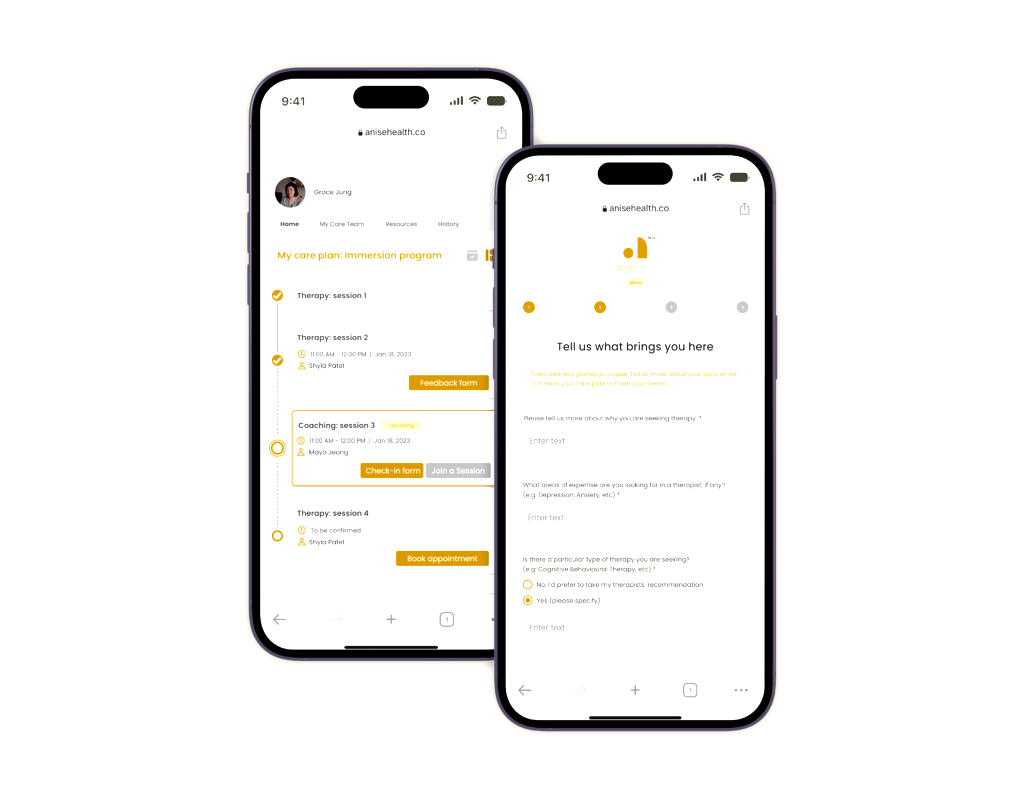Editor’s Note: NextShark, the parent company of NextShark, joined Anise Health as an investor in October.
Raising mission-aligned capital
Raising $3 million amid a challenging economic climate highlights both Anise Health’s resilience and the critical need for their work. The company adopted a focused approach to secure the right partners. “Rather than targeting generalist investors, our strategy was to be intentional about speaking to investors who could add value to our business with their deep understanding of the problem space,” Zhang and Desai told Rebel Yellow. “This meant outreaching to investors who either have expertise in healthcare technology or can help Anise achieve our vision of serving the global Asian population.” By prioritizing investors with healthcare technology expertise and the potential to help them serve the global Asian population, they were able to align their funding with their mission.
Fundraising, however, was no easy feat. “Startups founded by women received less than 2% of venture funding in 2023,” the founders noted, stressing how the odds were stacked against them as first-time, female founders of color. Yet their data-driven approach proved compelling: clinical outcomes showcased undeniable impact, and partnerships with insurers like Aetna, Magellan Health and HealthNet demonstrated traction. “We worked very hard to continue showing growth and outcomes while fundraising,” they added, attributing their success to resourcefulness and execution.
Addressing cultural barriers
The challenges that Anise aims to solve are deeply rooted in cultural experiences that have long been ignored by traditional mental health systems. Zhang and Desai explained how cultural stigmas — where emotions are suppressed, and seeking help can bring perceived shame — lead to severe underutilization of care among Asian Americans. “To address this stigma, we’ve adapted our care model to integrate psychotherapy with behavioral coaching, which helps clients turn theoretical concepts from therapy into actionable and attainable goals that activate behavior change,” they shared. “This not only helps make the process of getting started with care feel less intimidating, it helps to drive engagement and ultimately clinical progress.”
Language is another significant barrier. To tackle this, Anise curates a network of diverse providers proficient in key languages spoken across the Asian diaspora. Additionally, personalized digital resources target cultural stressors like perfectionism, people pleasing and intergenerational trauma, helping users build baseline awareness.
Leveraging technology to personalize care
Anise’s platform stands out for its ability to harness technology in culturally-nuanced ways. The team has developed AI-driven tools to optimize both client and provider experiences. “Clients receive personalized resource recommendations in their Workspace to augment care between sessions based on the goals they set with their therapist and coach, their reasons for seeking help and data from clinical assessments that evaluate levels of acculturative stress, perfectionism and more,” Zhang and Desai explained.
On the provider side, Anise is piloting a clinical decision-support tool that “generates recommendations for diagnosis, questions for probing authentically into cultural experiences and ultimately a treatment plan with interventions that address cultural stressors that may be driving a client’s symptoms of anxiety, depression or stress.” By empowering providers to deliver culturally-sensitive care, the platform ensures scalability without compromising quality.

Tackling mental health amid current challenges
Beyond individual care, the startup hopes to play a role in reshaping the broader mental health system. “We hope to push the mental health industry away from one-size-fits-all approaches and towards a more personalized standard of care that acknowledges every individual as a unique person with unique needs,” the founders stated. By integrating culturally-responsive training and expanding clinical research, Anise envisions a future where mental health is treated with the same nuance and importance as physical health.
Building the future of Asian mental health
As Anise scales its services across the U.S. and eventually to other global markets, its founders remain clear about their vision: to create a mental health care system where every individual’s cultural experience is seen, valued and understood. “Our vision for Anise is to build the gold standard of mental health care for the global Asian population. In the next five years, we’ll work towards bringing this vision to life by expanding to other service lines (i.e. medication management, couples therapy), new geographic markets and having coverage with all major health insurers in the U.S.,” Zhang and Desai shared. “Success will mean clients continue to demonstrate industry-leading engagement, satisfaction and clinical outcomes as we scale our user base, and that our providers feel supported and proud to be a part of the Anise team.”
With a future focused on inclusivity, innovation and impact, Anise is well on its way to building the gold standard for culturally-responsive mental health care — one that could reshape the mental health landscape for generations to come. In the meantime, Zhang and Desai encourage those facing mental health challenges to take the first step: “Whatever you are feeling, you are not alone. Opening up to someone you trust can be a great first step in helping you acknowledge those feelings.”

